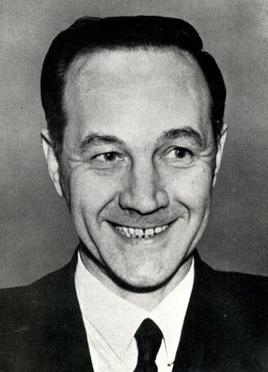Related Research Articles
The National Party of Scotland (NPS) was a centre-left political party in Scotland which was one of the predecessors of the current Scottish National Party (SNP). The NPS was the first Scottish nationalist political party, and the first which campaigned for Scottish self-determination.
The Scottish (Self-Government) Party was a Scottish nationalist political party formed in 1932 by a group of members of the Unionist Party who favoured the establishment of a Dominion Scottish Parliament within the British Empire. The Scottish Party differed from the existing National Party of Scotland (NPS) on the grounds that the NPS and the form of Scottish independence it advocated was ambiguous about the Empire, and they also disagreed with the left-of-centre platform of the NPS.

John MacDonald MacCormick was a Scottish lawyer, Scottish nationalist politician and advocate of Home Rule in Scotland.

The politics of Scotland operate within the constitution of the United Kingdom, of which Scotland is a country. Scotland is a democracy, being represented in both the Scottish Parliament and the Parliament of the United Kingdom since the Scotland Act 1998. Most executive power is exercised by the Scottish Government, led by the First Minister of Scotland, the head of government in a multi-party system. The judiciary of Scotland, dealing with Scots law, is independent of the legislature and the Scottish Government. Scots law is primarily determined by the Scottish Parliament. The Scottish Government shares some executive powers with the Government of the United Kingdom's Scotland Office, a British government department led by the Secretary of State for Scotland.
In Scotland, the Scottish National Party (SNP) is a left social democratic political party which campaigns for Scottish independence. The SNP has controlled Scotland's devolved legislature since the 2007 election as a minority government, and were a majority government from the 2011 election and have been a minority government, since the 2016 election.

North Ayrshire and Arran is a constituency of the British House of Commons, located in the south-west of Scotland within the North Ayrshire council area. It elects one Member of Parliament (MP) at least once every five years using the first-past-the-post voting system of voting.
Argyllshire was a county constituency of the House of Commons of the Parliament of Great Britain from 1708 to 1800 and of the House of Commons of the Parliament of the United Kingdom from 1801 until 1983. The constituency was named Argyll from 1950. The constituency was replaced in 1983 with Argyll and Bute.

The Glasgow Camlachie by-election was held on Wednesday 28 January 1948, following the death of the sitting Member of Parliament, Campbell Stephen.
Parliamentary by-elections in the United Kingdom occur when a Member of Parliament (MP) vacates a House of Commons seat during the course of a parliament.

The 2011 Scottish Parliament election was held on Thursday, 5 May 2011 to elect 129 members to the Scottish Parliament.
The 1946 Combined Scottish Universities by-election was a by-election held from 22 to 27 November 1946 for the Combined Scottish Universities, a university constituency of the British House of Commons.

John MacDonald Bannerman, Baron Bannerman of Kildonan OBE was a Scottish farmer, rugby union internationalist and Liberal politician.

The Motherwell by-election was held on 12 April 1945, following the death of Labour Party Member of Parliament (MP) for Motherwell, James Walker.
There was a by-election for Dundee East, in Scotland, on 1 March 1973. It was one of three UK parliamentary by-elections held on that day. It was caused by the appointment of George Thomson as a European commissioner. George Machin retained the seat for Labour, but only narrowly. There was a strong showing by the Scottish National Party, which prefigured their serious breakthrough at the Govan by-election later in the year, and the two general elections of 1974.
The 1954 Inverness by-election was a by-election held on 21 December 1954 for the British House of Commons constituency of Inverness.
The 1920 Argyllshire by-election was a parliamentary by-election held for the British House of Commons constituency of Argyllshire on 10 March 1920.
William Power was a Scottish writer, journalist, and politician. He was the leader of the Scottish National Party from 1940 to 1942, and served as President of the Scottish Convention between 1942 and 1951.
The Argyll by-election of 12 June 1958 was held after the death of Conservative Party MP Duncan McCallum.

Elections to East Lothian Council were held on 3 May 2012, on the same day as the other Scottish local government elections. The election used the 7 wards created as a result of the Local Governance (Scotland) Act 2004, with each ward electing three or four councillors using the single transferable vote system form of proportional representation, with 23 councillors elected.
The Dundee East by-election was held on 17 July 1952, due to the death in a road accident of the incumbent Labour MP, Thomas Cook. It was won by the Labour candidate George Thomson.
References
- 1 2 3 F W S Craig, British Parliamentary Election Results 1918-1949; Political Reference Publications, Glasgow 1949
- ↑ "Scottish Nationalist to contest Argyll. Mr William Power Adopted as Candidate". The Glasgow Herald. 13 March 1940. p. 9. Retrieved 10 September 2016.
- 1 2 "Government win in Argyll. Major McCallum returned. Majority of 5009 in reduced poll. Scottish Nationalist's 7308 Votes". The Glasgow Herald. 13 April 1940. p. 7. Retrieved 10 September 2016.